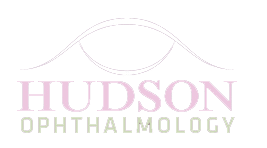An ophthalmologist is a medical doctor who specializes in the diagnosis, treatment, and management of diseases and conditions related to the eyes and visual system. As experts in the field of ophthalmology, these dedicated professionals play a vital role in preserving vision and ensuring the overall health of the eyes. This article will delve into the responsibilities and expertise of an ophthalmologist, shedding light on the critical role they play in safeguarding one of our most precious senses.
Education and Training
Becoming an ophthalmologist requires an extensive educational journey. After completing undergraduate studies and obtaining a medical degree (M.D. or D.O.), aspiring ophthalmologists undergo a residency program specializing in ophthalmology. This rigorous training typically spans three to four years and includes hands-on experience, surgeries, and rotations in various subspecialties within ophthalmology.
Comprehensive Eye Examinations
One of the primary roles of an ophthalmologist is to perform comprehensive eye examinations. These examinations encompass a series of tests and evaluations to assess visual acuity, eye muscle function, peripheral vision, and overall eye health. Through these exams, ophthalmologists can detect early signs of eye conditions and address them promptly to prevent further vision impairment or complications.
Diagnosing and Treating Eye Conditions
Ophthalmologists are well-equipped to diagnose and treat a wide range of eye conditions and diseases. From common refractive errors like myopia (nearsightedness), hyperopia (farsightedness), and astigmatism to more complex issues like glaucoma, cataracts, macular degeneration, and diabetic retinopathy, ophthalmologists employ their expertise and advanced diagnostic tools to provide accurate assessments and personalized treatment plans.
Specialized Subspecialties
Within the field of ophthalmology, there are various subspecialties that ophthalmologists may choose to pursue, depending on their interests and expertise. These subspecialties include:
Retina Specialist
Focuses on treating conditions affecting the retina, such as age-related macular degeneration and diabetic retinopathy.
Cornea and External Disease Specialist
Deals with diseases related to the cornea, conjunctiva, and external eye structures and may perform corneal transplants.
Glaucoma Specialist
Specializes in the diagnosis and management of glaucoma, a condition characterized by increased intraocular pressure that can damage the optic nerve.
Pediatric Ophthalmologist
Specializes in the evaluation and treatment of eye conditions in children, including amblyopia (lazy eye) and strabismus (misalignment of the eyes).
Oculoplastic Surgeon
Focuses on surgical procedures related to the eyelids, tear ducts, and orbit.
Refractive Surgeon
Specializes in vision correction surgeries, such as LASIK and PRK, to reduce dependency on glasses and contact lenses.
Surgical Expertise
Ophthalmologists are skilled surgeons who perform various eye surgeries to address vision problems and eye conditions. These surgical procedures may include cataract surgery, refractive surgeries like LASIK, glaucoma surgery, corneal transplantation, and procedures to repair retinal detachments. With their precise surgical skills, ophthalmologists can significantly improve their patients' vision and quality of life.
Vision Rehabilitation and Low Vision Services
For individuals with irreversible vision loss, ophthalmologists may work with vision rehabilitation specialists to provide low vision services. These services involve the use of specialized devices and training to help individuals maximize their remaining vision and adapt to their visual impairment, enabling them to maintain independence and engage in daily activities.
For More Info:-
hudson valley cataract surgery






Comments